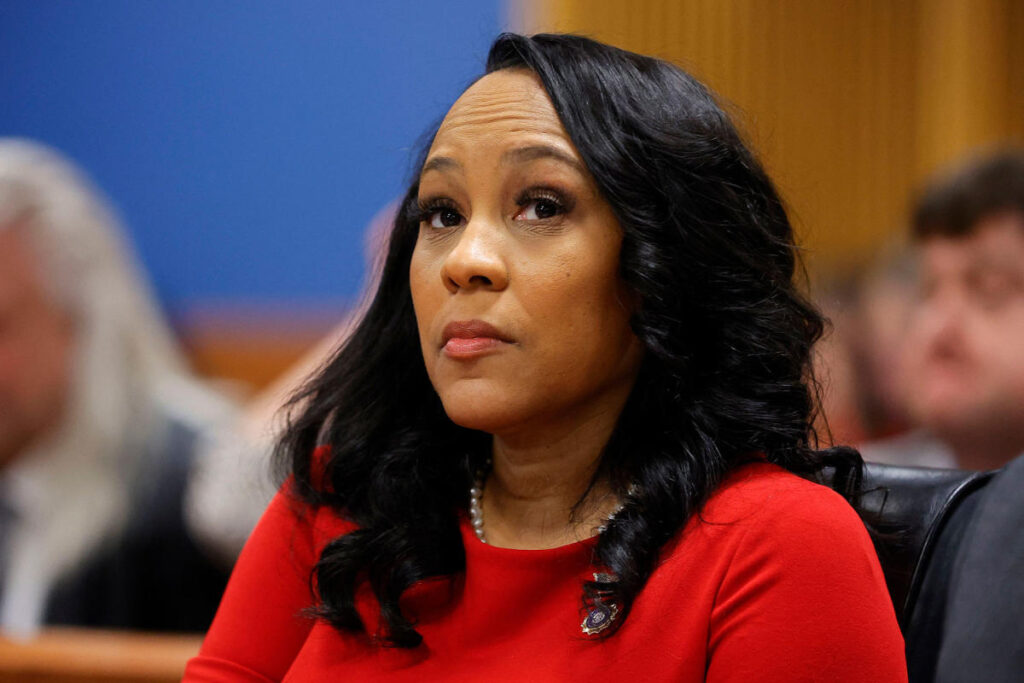The recent ruling by a Georgia appellate court to disqualify Fulton County District Attorney Fani Willis from prosecuting Donald Trump and his co-defendants has significant ramifications for the case aimed at contesting the 2020 presidential election results. The court’s decision is seen as a major blow to the prosecution, effectively halting the efforts to hold Trump and his allies accountable for what the indictment describes as a concerted attempt to overturn the election results in Georgia. Following the appeal, Trump’s attorney, Steve Sadow, lauded the decision as a just resolution, framing the legal battle as a politically motivated attack against Trump, the former president, positioning him as a victim of judicial overreach.
Legal experts indicate that while the appellate court’s ruling does not completely dismiss the case against Trump and his co-defendants, it complicates future proceedings. According to Georgia law, a replacement prosecutor can be appointed from another county, but experts caution that this transition won’t be straightforward. The intricate nature of the racketeering case, which involves extensive allegations and multiple defendants, may create procedural challenges. Trump’s spokesperson echoed the sentiment that the ruling reflects a desire among the American public to end the perceived weaponization of the justice system against Trump.
The origin of the disqualification stems from concerns regarding an “appearance of impropriety” due to Willis’s romantic relationship with special prosecutor Nathan Wade. While Fulton County Superior Court Judge Scott McAfee initially addressed these concerns by deciding one of them needed to step away from the case, the appellate court concluded that the measures taken were insufficient. The court emphasized that maintaining public confidence demands a stricter remedy than what was previously implemented. Notably, the decision from the appellate court was framed within the context of ensuring integrity and transparency in the judicial process.
The dissenting opinion from one of the appellate judges, Benjamin Land, highlights a divide in judicial philosophy regarding the standards for disqualification. He argued that merely an appearance of impropriety without a demonstrated conflict of interest was insufficient to justify the appellate court’s decision. This dissent points to a longer-standing precedent in Georgia’s appellate courts, which has maintained that actual impropriety must be shown for a disqualification motion to succeed. This divergence illustrates the complexities of the case and the legal standards at play regarding prosecutorial conduct.
Allegations of impropriety against Willis were initially brought forward by a lawyer representing Michael Roman, another co-defendant in the case. These allegations implied that Willis had skirted regulations in appointing Wade and had financial interests tied to the relationship. Despite testimonies from both Willis and Wade asserting that their relationship began after his appointment and that no improper financial benefits accrued to Willis, the judge criticized her poor judgment in engaging in a personal relationship with an official involved in her office’s legal proceedings.
As the case progresses toward an appeal to the Georgia Supreme Court, the timeline for resolution remains uncertain. If the Supreme Court chooses to hear the case, the re-assignment of the prosecution could take considerable time, as evidenced by prior disqualification instances. The impact of this ruling is profound, as it not only raises questions about the future of the high-profile racketeering case against Trump but also has implications for the broader discourse on the intersection of politics and the judicial system. To date, Trump’s indictment includes severe charges ranging from racketeering to conspiracy, all stemming from acts aimed at altering the election outcomes, a subject evident in the ongoing legal challenges and battles for political narrative supremacy.

